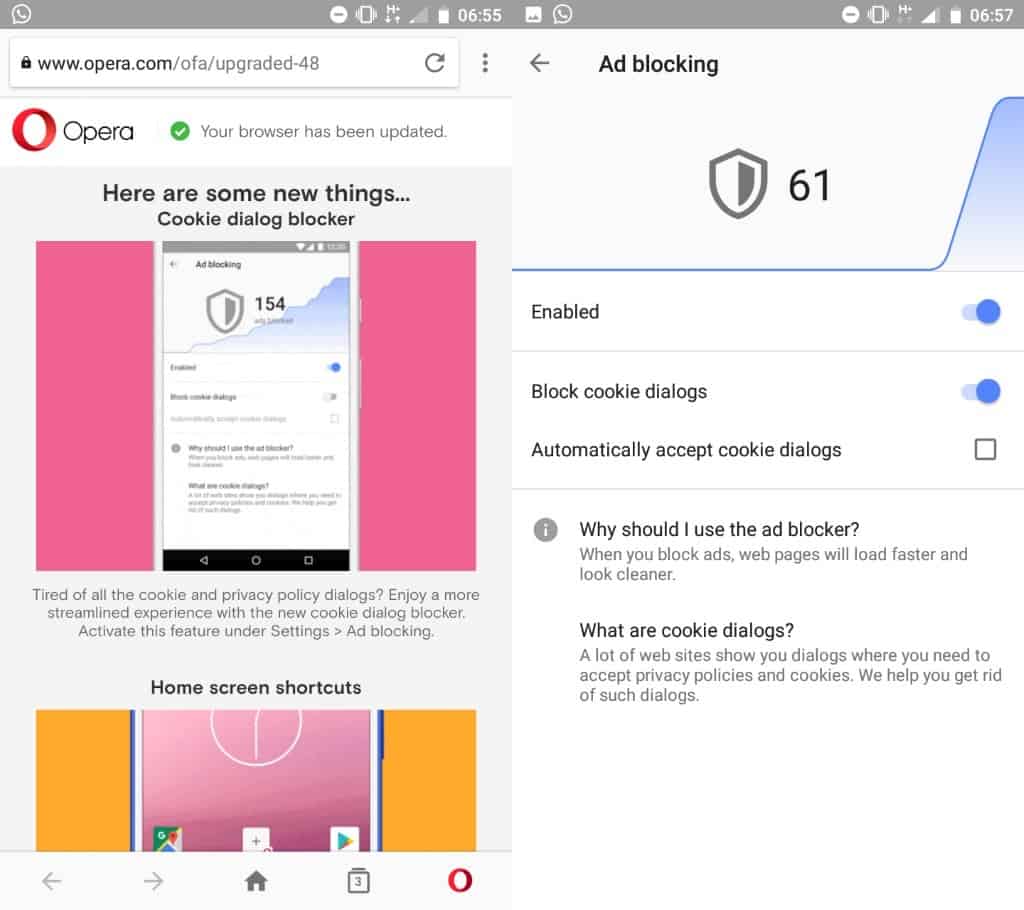by Martin Brinkmann on November 06, 2018 in Opera – Last Update: November 06, 2018 – No comments
Opera Software published a new version of the company’s Opera web browser for Android today. The new version of the mobile browser includes an option to block cookie dialogues that websites display automatically.
Internet users are exposed to cookie and General Data Protection Regulation (GDPR) notifications regularly. Most sites reveal to users that they do use cookies and collect certain data, and give users options to accept or decline privacy policies.
Designed to improve user rights on the Internet, the system changed the user experience significantly. Users are bombarded with cookie dialogues that take over part of the screen or even the entire screen until the user interacts with the dialogue.
Browser extensions and filter lists were created to block or bypass cookie notices automatically. These removed the notices from the screen automatically to automate the step for users who installed these in browsers.

Opera for Android includes an ad-blocking component. It blocks advertisement on the Internet to speed up the page loading time of sites, reduce bandwidth costs, and eliminate tracking and other unwanted effects of advertisement.
The latest version of the mobile browser includes a new option to deal with cookie dialogues automatically. Opera Software added it to the browser’s ad-blocking component. The option is disabled by default and needs to be activated even if ad-blocking is enabled. Here is how that is done:
- Open the Opera web browser on the Android device. Make sure that it is up to date. Note that it may take some time before new versions are pushed to user devices (staged roll out).
- Select Opera > Settings.
- Select Ad blocking on the Settings page to manage the functionality.
- Enable Ad blocking if you have not already.
- Toggle “Block cookie dialogs” to enable cookie blocking.
Opera attempts to block cookie and privacy dialogues that sites display when you access them automatically from that point forward. You may enable “automatically accept cookie dialogs” on the page to accept these dialogues automatically instead of blocking them.
Some sites may not work properly if you don’t accept cookie or privacy notifications.
Opera’s implementation blocks or accepts cookie and privacy notifications in the browser but it does not interfere with a site’s ability to save cookies to the user system.
The cookie notification blocker uses a “combination of CSS rules and JavaScript heuristics” according to Opera. The company tested the implementation on 15,000 websites and promises that the number will increase in the future.
Closing Words
Most Internet users find cookie and privacy dialogues annoying as it impacts the user experience on the Internet. Demand for solutions to address the issue directly, e.g. by blocking them, exists and Opera added another solution to the growing list of tools that users may use to deal with it.
Now You:How do you handle cookie and privacy dialogues?